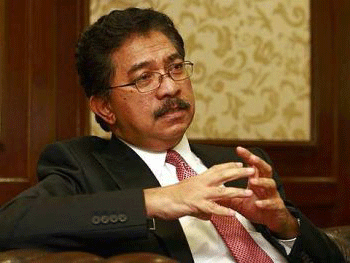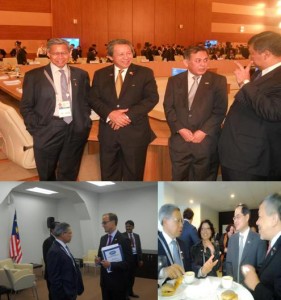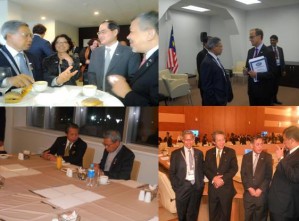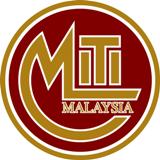Tag Archives: WTO

 Highlights of the MITI Weekly Bulletin, Vol. 110 include:
Global Competitiveness Report 2010-2011
The Global Competitiveness Report (GCR) 2010-2011 by the World Economic Forum (WEF) based in Geneva, Switzerland covers 139 countries (GCR 2009-2010: 133 countries). GCR uses 30% statistical data (32 criteria) and 70% survey data (79 criteria) from its Executive Opinion Survey. Malaysia is ranked at the 26th position.
Micro-Financing for SMEs
Micro-finance is a proven tool for fighting poverty on a large scale. It provides small loans, also known as micro-loans, to start or expand small and self-sufficient businesses. Unlike commercial loans, no collateral is required for a micro-loan which is usually repaid within six months to a year. Micro-financing is an important mechanism for micro enterprises to achieve economic balance.
The Malaysian Standard on Globally Harmonised System (GHS) for Classification and Labelling of Chemicals (MS 1804:2008)
The Malaysian Standard on GHS...
Highlights of the MITI Weekly Bulletin, Vol. 110 include:
Global Competitiveness Report 2010-2011
The Global Competitiveness Report (GCR) 2010-2011 by the World Economic Forum (WEF) based in Geneva, Switzerland covers 139 countries (GCR 2009-2010: 133 countries). GCR uses 30% statistical data (32 criteria) and 70% survey data (79 criteria) from its Executive Opinion Survey. Malaysia is ranked at the 26th position.
Micro-Financing for SMEs
Micro-finance is a proven tool for fighting poverty on a large scale. It provides small loans, also known as micro-loans, to start or expand small and self-sufficient businesses. Unlike commercial loans, no collateral is required for a micro-loan which is usually repaid within six months to a year. Micro-financing is an important mechanism for micro enterprises to achieve economic balance.
The Malaysian Standard on Globally Harmonised System (GHS) for Classification and Labelling of Chemicals (MS 1804:2008)
The Malaysian Standard on GHS...


Bagi memastikan keselamatan makanan, Menteri-Menteri APEC hari ini menyarankan tentang perlunya perdagangan bagi produk-produk pertanian ini dipermudahkan melalui penggubalan dasar yang bertepatan. Mereka turut menyatakan harapan ke arah kerjasama yang lebih erat dalam bidang ini melalui APEC termasuklah melalui peningkatan R&D pertanian serta perkongsian amalan terbaik.
Dalam celahannya, Dato’ Sri Mustapa menekankan bahawa “Bagi Malaysia, agenda pertanian dan keselamatan makanan merupakan satu keutamaan. Malaysia berpendapat bahawa pengeluaran dan perdagangan bagi produk-produk pertanian boleh dipertingkatkan melalui penurunan...


 1238 Views
1238 Views